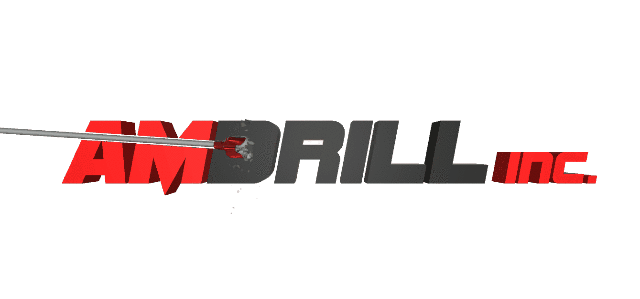Marine Drilling Companies Bloomingdale Complications Marine Drilling Companies Face
Marine drilling companies operate in some of the most challenging and demanding environments in the world, navigating a complex array of complications that arise from working offshore. These complications encompass a broad range of issues, from environmental and technical challenges to logistical and safety concerns. Successfully addressing these complications is crucial for the efficiency and safety of marine drilling operations, as well as for the protection of the environment and the well-being of workers.
Environmental Challenges
Weather Conditions: One of the most significant complications marine drilling companies face is the impact of harsh weather conditions. Offshore drilling rigs are exposed to extreme weather, including high winds, rough seas, and severe storms. These conditions can hinder drilling operations, cause delays, and increase the risk of accidents. Weather forecasts must be closely monitored, and operations often need to be adjusted or halted to ensure safety.
Marine Ecosystems: Drilling activities can have a profound impact on marine ecosystems. The discharge of drilling fluids and cuttings, potential oil spills, and physical disturbances can harm marine life and disrupt local ecosystems. Marine drilling companies must adhere to strict environmental regulations and implement measures to mitigate their impact, such as using environmentally friendly drilling fluids and conducting thorough environmental impact assessments.
Oil Spills: The risk of oil spills is a major concern in marine drilling. Accidents or equipment failures can lead to significant spills, which have devastating effects on marine environments and coastal areas. Effective spill response plans and contingency measures are essential to address potential spills and minimize their impact. Regular drills and the use of advanced technology for spill detection and response are critical for managing this risk.
Technical Challenges
Subsea Equipment: Marine drilling involves complex subsea equipment that operates at great depths and under high pressures. This equipment, including blowout preventers (BOPs), risers, and subsea pumps, must be designed and maintained to withstand harsh conditions. Equipment failure can result in costly downtime and pose significant risks to safety and the environment.
Pressure and Temperature Extremes: The extreme pressures and temperatures encountered during marine drilling pose additional challenges. Equipment and materials must be specially designed to endure these conditions. For instance, deepwater drilling operations require high-strength materials and advanced engineering to cope with the high pressures found at significant depths.
Complex Drilling Operations: Marine drilling often involves complex operations such as directional drilling, which requires precise control of the drill bit’s trajectory. Achieving accurate well placement and managing the drill string’s behavior in the dynamic marine environment require sophisticated technology and expertise.
Logistical Challenges
Transportation and Supply Chain: Offshore drilling operations rely on a complex supply chain for the delivery of equipment, materials, and personnel. Transporting these resources to and from offshore rigs involves significant logistical coordination. Delays in supply deliveries or issues with transportation vessels can disrupt drilling operations and increase costs.
Rig Mobility: The mobility of drilling rigs is another logistical challenge. Offshore rigs must be moved to different locations based on drilling schedules and exploration results. This process involves careful planning and execution, as well as the coordination of multiple vessels and equipment. Rig relocation can be costly and time-consuming, particularly in adverse weather conditions.
Crew Accommodation: Offshore rigs are often equipped with living quarters for the crew, which must provide adequate accommodation, safety, and amenities. Managing the well-being of the crew, including their physical and mental health, is crucial for maintaining high levels of performance and safety. The isolation and demanding nature of offshore work can also contribute to crew fatigue and stress.
Safety Concerns
Accident Prevention: Ensuring the safety of personnel is a top priority in marine drilling. The offshore environment presents numerous hazards, including the risk of falls, equipment failures, and fire or explosion. Marine drilling companies must implement rigorous safety protocols, conduct regular training, and ensure that safety equipment is readily available and in good working order.
Emergency Response: Preparing for emergencies is essential in marine drilling. This includes developing and practicing emergency response plans for scenarios such as blowouts, fires, and medical emergencies. The ability to respond quickly and effectively can mitigate the impact of incidents and protect both personnel and the environment.
Health Risks: Offshore drilling exposes workers to health risks related to both the environment and the nature of the work. Exposure to noise, vibration, and hazardous substances can affect workers’ health. Regular health monitoring and protective measures are necessary to ensure that workers remain healthy and safe.
Regulatory and Compliance Issues
Regulations and Standards: Marine drilling companies must navigate a complex web of regulations and standards set by national and international bodies. Compliance with these regulations is essential to avoid legal issues, fines, and operational disruptions. Keeping up-to-date with changes in regulations and ensuring that all operations meet regulatory requirements is an ongoing challenge.
Permit and Licensing Requirements: Obtaining the necessary permits and licenses for offshore drilling operations involves a detailed application process and can be time-consuming. Companies must ensure that they have the required approvals before commencing drilling activities, and they may need to address concerns from regulatory agencies and local communities.
Conclusion
Marine drilling companies face a multitude of complications that require careful management and expertise. From environmental and technical challenges to logistical and safety concerns, these companies must navigate a complex landscape to ensure successful and sustainable drilling operations. Addressing these challenges involves a combination of advanced technology, rigorous safety protocols, effective logistical coordination, and a commitment to environmental stewardship. By overcoming these complications, marine drilling companies contribute to the development of essential resources while safeguarding the environment and ensuring the safety of their operations.

